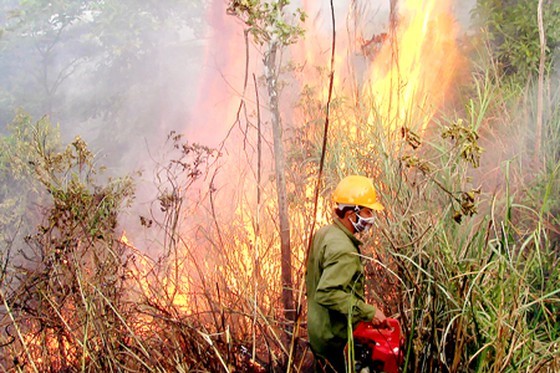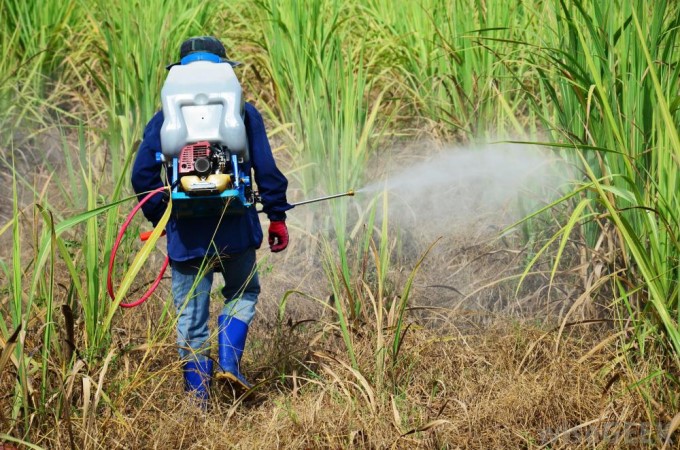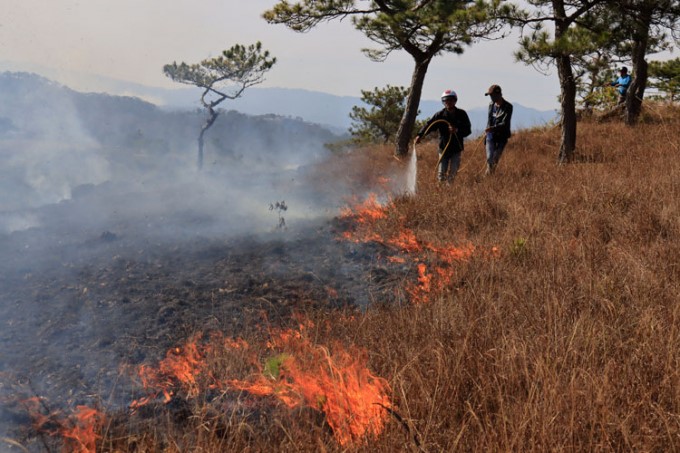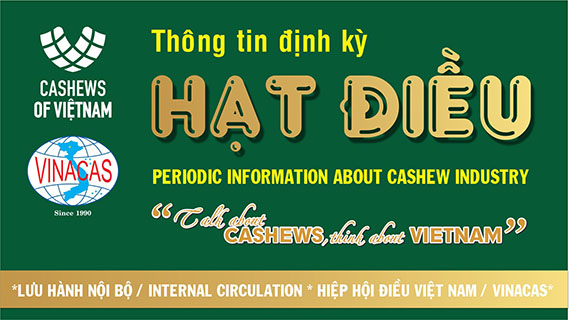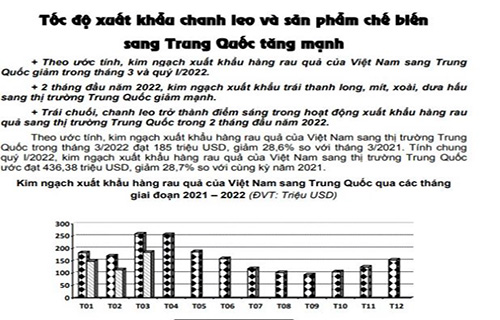|
How to use weed killer as the season approaches?
19/09/2021
Weeds erupt strongly in the rainy season, causing a very high risk of forest fires in the dry season, and also a shelter for insects and rats. According to the Food and Agriculture Organization of the United Nations (FAO), a 2009 study found that weeds cause losses of up to $95 billion a year (of which $70 billion is in poor countries). $95 billion is equivalent to 380 million tons of wheat, accounting for more than half of the world is wheat production. For Vietnam, the problem of weeds is the top concern of farmers. Weeds reduce soil fertility, reduce yield and quality of agricultural products, and increase labor costs. The rainy season is coming, a new planting season, an opportunity for weeds to grow strongly, a very high risk of forest fires when transitioning from the rainy season to the dry season, and also a shelter for the mold fungi, insect pests and rats that damage crops. The risk of forest fire is very high if we do not pay attention to thoroughly handle weeds. Photo: TL. Some problems of herbicide When there is no herbicide, people often pull, hoe and harrow etc… but only in small area, high cost. For example, growing 1 hectare of sugarcane requires 25-30 labors and each worker must pay at least 150,000-250,000 VND. Due to manual weeding and hoeing, plants are very susceptible to infection by fungi and bacteria when the roots are damaged like black pepper etc... Mechanization measures: This is the most optimal method because plowing, harrowing, turning over is used to loosen the soil, create ventilation of the topsoil layer and depth of the ground, then cultivate beds, plots of land , etc. plants such as: Sugarcane, pineapple, beans of all kinds etc ... But the limitation is that the plants that have grown in the weed forest are very difficult to use mechanization. The hilly and sloping areas cannot be implemented, even in small and fragmented areas. Crops are also vulnerable when using machinery and equipment such as rubber trees, black pepper etc ... The method of intercropping other crops: This is a very beneficial measure. When planting long-term crops, we intercrop short-term crops, both bringing economic benefits from secondary crops, solving weeds and regenerating green manure for plants after harvesting short-term plants. But the limitation is the ability of secondary crops to absorb fertilizer prior to perennial trees. Methods of using organic and biological herbicides: This is the best measure and any country is researching and investing. But the limitation of this method is that there have not been many studies on bio-herbicides; Very expensive, difficult to maintain. People need to pay attention to the urgency of the crop, avoiding the abuse of herbicides that affect health and the environment. Photo: ST. Chemical methods to control weeds:: This can be said to be a measure that all countries in the world are industrially producing and widely used, including Vietnam is agriculture. However, having used chemical herbicides, it must be said that the risk is very toxic, toxic and implicitly dangerous to human health. Residues of pesticides in agricultural products and fruits after harvest are still very toxic when used by humans. There are types that leave long-term sequelae such as Agent Orange Dioxin. This poison is already available in the herbicide 2.45 T. Therefore, the world has had the Rotterdam Convention stipulating certain hazardous chemicals and pesticides in international trade for all countries and regional economic integration organizations signed in Rotterdam on . September 10, 1998, effective from February 24,2004 with the participation of members of 265 agencies and countries. Vietnam ratified the Rotterdam Convention on May 7, 2007 to fulfill its commitments under the Rotterdam Convention and has issued legal documents related to pesticides. Accordingly, on February 8, 2017, the Ministry of Agriculture and Rural Development decided to remove pesticides containing active ingredients of 2,4 D and Paraquat from the list. On April 10, 2019, the Ministry of Agriculture and Rural Development decided to continue to remove pesticides containing the active ingredient of Glyphosate from the list of pesticides allowed to be used in Vietnam. Herbicide prices skyrocketed In fact, the list of pesticides allowed to be used is very diverse for rice and upland crops. However, reclaimed or non-selective herbicides are facing many difficulties in licensing. Specifically, currently the most popular and easy to use is the group of products with the active ingredient of Glufosinate Amonium (referred to as GA-based products). Currently, Vietnam is in the rainy season, which is also a short and long-term planting season. Therefore, fellow farmers must spray weeds before planting and kill weeds to fight against forest fires in the dry season. so the amount used is very large. While foreign manufacturers like China and India cannot meet the demand, prices have skyrocketed. The current price compared to the same period last year has increased very strongly, increasing by more than 230% and is expected to increase further. Therefore, it is likely that there will be no products to control weeds or fellow farmers have to spend a huge amount of money to invest. Another implicit danger is that if herbicides are not sprayed, the risk of forest fires is very high in the dry season in the Southeast and Central Highlands, as well as creating an environment for harmful insects, especially rats, Winter Spring season . Although GA currently has many different trade names of many registered domestic and foreign companies, it can meet the demand but the price is too high. Moreover;there is also a second active ingredient to replace the one that has been removed from the list of uses to be Diquat , which is also increasing in price (though not as good as GA).Because there are only a few in the list, only 1 or 2 trade names are very difficult risk to the market for reclaimed or non-selective herbicides. It can be said that the prevention of harmful weeds with chemical herbicides today is very necessary. However, people need to pay attention to the urgency of the crop as well as the choice of herbicidal products that bring high economic efficiency, and at the same time do not affect health as well as environment NGUYEN QUOC DUNG (CEO of Saigon Plant Protection Company) |
The VINACAS Standing Executive Members Board has issued a plan to implement the delegation activities in China. From this plan, the VINACAS Office sent an Invitation Letter, inviting qualified businesses to register to join the delegation
As for the Korean market, although this is the traditional export market of Vietnam is vegetables and fruits and has a growth rate in the first months of 2022, however, the export value still reaches a low level. One of the reasons
The season in Vietnam and Cambodia is almost over, most people are big buyers and have just stopped buying. Show only number of small with low quality is in the plan. Value is around 1250-1280USD / dry attack 25% recovery with vulnerability around 13-14%.
The cashew crop in VietNam and Cambodia has alomost ended, most large and medium buyers have stopped buying. Currently, only a small quantily with low quality is harvested by farmers. The selling price of dried raw cashew nuts is around 1250-1280$ per Mt/ outturn of 25%/ defective rate of 13 to 14%.
Recommendations to members and businesses: Do not sign a contract to sell cashew kernels when there is no raw cashew in stock or no profit calculation because the price of cashew kernel may increase in the coming months according to the increasing trend of cashew price.
On April 15, the Party Committee of the Ministry of Agriculture and Rural Development (MARD) held the Conference on Mastering the Action Program of the Party Personnel Committee in response to the Vietnamese use Vietnamese products Campaign and the 2021-2030 Strategy for Sustainable Agriculture and Rural Development - vision to 2050
At the beginning of March 2022, Leaders and VINACAS Office received the following information: Some enterprises in the industry were suspected of being scammed during the process of exporting cashew kernels to Italy. VINACAS requested enterprises to report the situation to collect further information.
Belgian company aims to become a reliable companion of Vietnamese farmers
"Dragon fruit production season is coming to an end and prices are still low"- China
Singapore: Scientists study mushroom compound to delay or prevent mental decline.
Fruit becomes the new focus of anti-COVID measures, demand for some fruits increases sharply - China News
- Headquarters
- SAIGON PLANT PROTECTION JOINT STOCK COMPANY
- RQ 1, Nguyen Van Quy St., Tan Thuan Ward, HCM City
- Tax code: 0300632232
- Tel: (028) 38 733 295 - 38 732 077
- Fax: (028) 38 733 003 - 38 733 391
- Website: www.spchcmc.vn - Email: info@spchcmc.vn
- SAIGON PLANT PROTECTION COMPANY
- SAIGON PLANT PROTECTION JOINT STOCK ENTERPRISE
- Lot C1-C3 Hiep Phuoc Industrial Park, Hiep Phuoc Commune, HCM City
- Tel: (028) 3873 4089 - Fax: (028) 3873 4086
- Affiliated Unit
-
- Quick Links
- Home
- About us
- Career Opportunities


